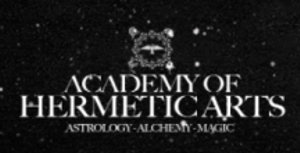Foreword
Foreword
In 1909, while attending a Brotherhood of Light meeting in Denver Colorado, Elbert Benjamine was approached by the Order to write The Brotherhood of Light lessons. In 1910 he agreed and began the process of writing under the pen name C. C. Zain. As each lesson was completed it was published in serial lesson format and distributed to the members of The Brotherhood of Light. He completed writing all of the lessons in 1934. Eventually the serial lessons were formed into the books or courses we have today.
Until he passed away on November 18, 1951 the books were continuously edited to incorporate new information or to correct errors. After his passing to the inner plane, per his request, the books remained the same. Because the material contained in the Twenty-One Brotherhood of Light Lessons reflects the cultural milieu of the early twentieth century, there will undoubtedly be notions and ideas that have since been replaced with more highly evolved thinking. He predicted it would be so. For example, many of us today find ourselves put-off by sexist language that was commonplace during his era, when the generic use of ‘man’ and ‘he’ (and ‘his’, ‘him’, ‘himself’) was commonly considered gender-neutral. And while much of the science incorporated into the Lessons is still valid today, there are a number of scientific references that are no longer accepted. One example of this is the reference to the Piltdown man, which was found to be a forgery in 1952, the year after his passing. Zain also makes reference to the “ether” as a medium for the transmission of electromagnetic waves. While he points out that the concept of the ether was discarded by the scientists of his day as superfluous, he nevertheless portrays it as a useful concept. It is interesting to note that the concept has reentered scientific discussions in recent years.
Although there are a few things that seem archaic or incorrect, there is a wealth of useful concepts and information. For example, his theory of Astral Substance and Thought Elements or Thought Cells present a new paradigm for explaining how the unconscious mind works and how astrological energies work in stimulating particular thought elements. These theories shed new light on the Hermetic Axiom “as above, so below” and provide a unifying explanation for how the inner (formative) world interpenetrates and shapes the thoughts, feelings, emotions and events of life. These new theories are profound and worthy of exploration and deep consideration.
Undoubtedly we have much more to learn about astrology or the application of alchemy. Nevertheless, C. C. Zain’s concepts of Directed Thinking and Induced Emotion were ground-breaking. Magic seems to be morphing into modern day psychology and the recognized power of visualization and positive thinking.
When it comes to the basic quest for “truth”, none can compare. Zain advocates that we not accept something as true because he stated it in The Brotherhood of Light Lessons. Rather, he challenges each of us to verify the information for ourselves. It is this philosophy of continuing to ask questions that leads to further discovery. He often repeats in the Lessons: “the truth shall set you free.” The quest for truth and a desire to liberate the human spirit keeps us moving forward in the journey of soul progression. As a philosophy of life, the integration of Hermetic tradition with modern science illuminates the path forward. The Brotherhood of Light Lessons shine as a bright beacon, elucidating the experiences of everyday life.
The Church of Light, 2013
